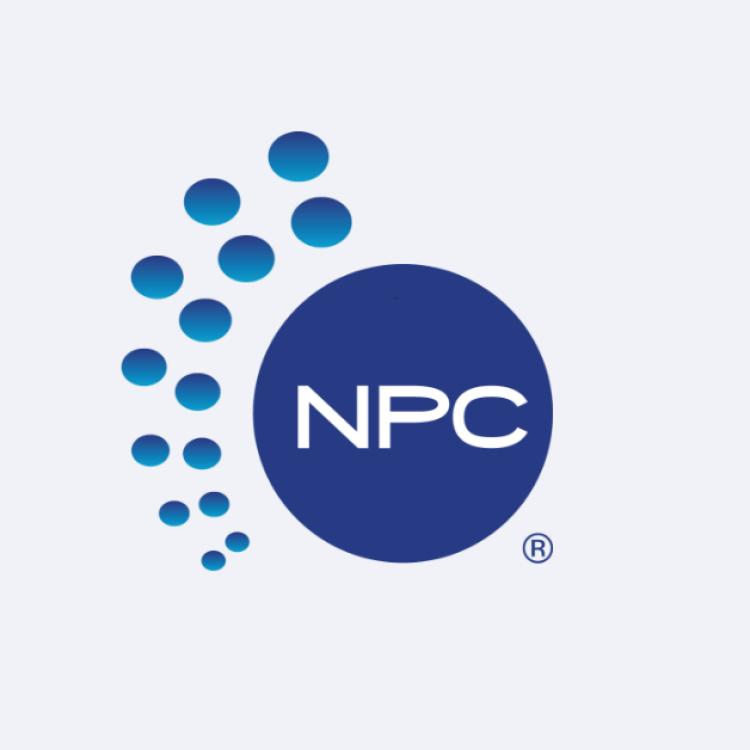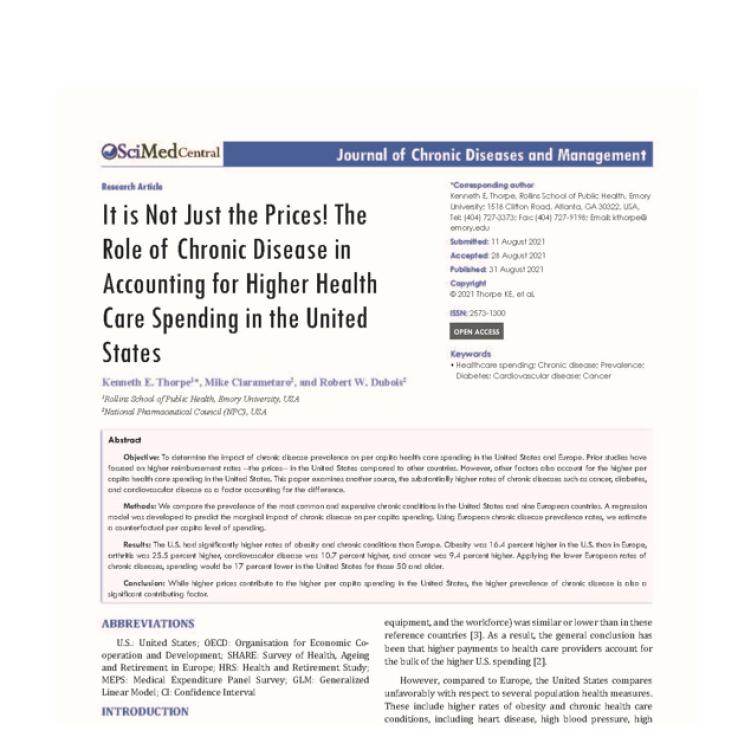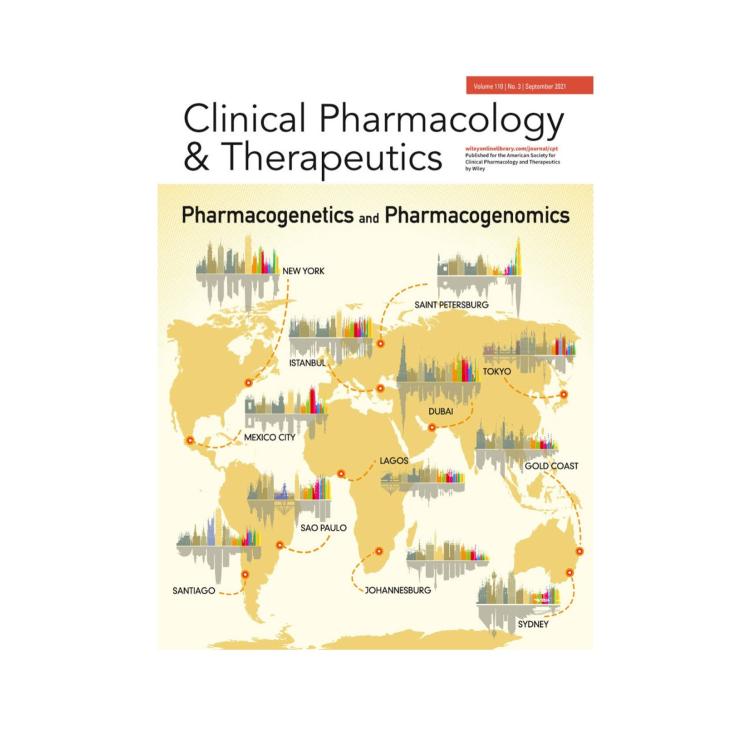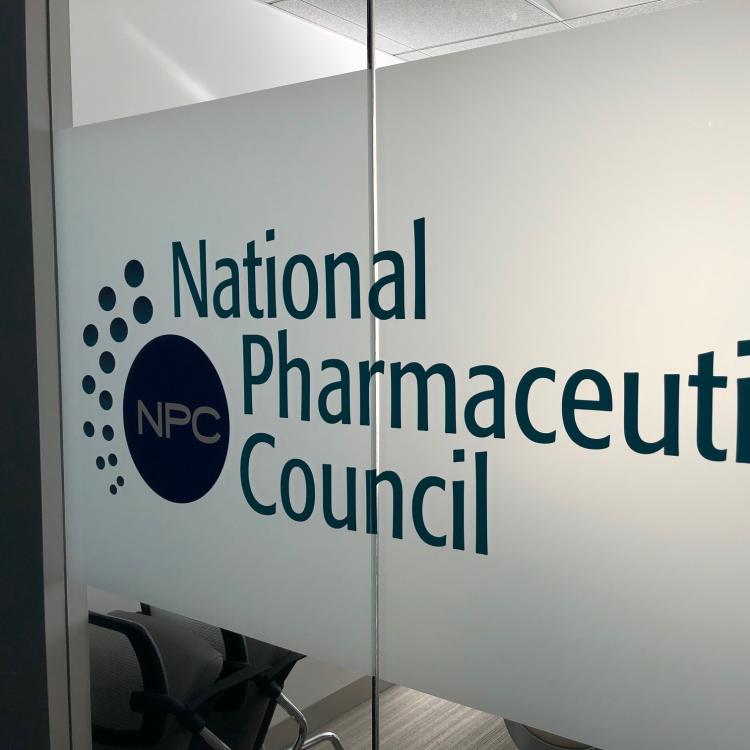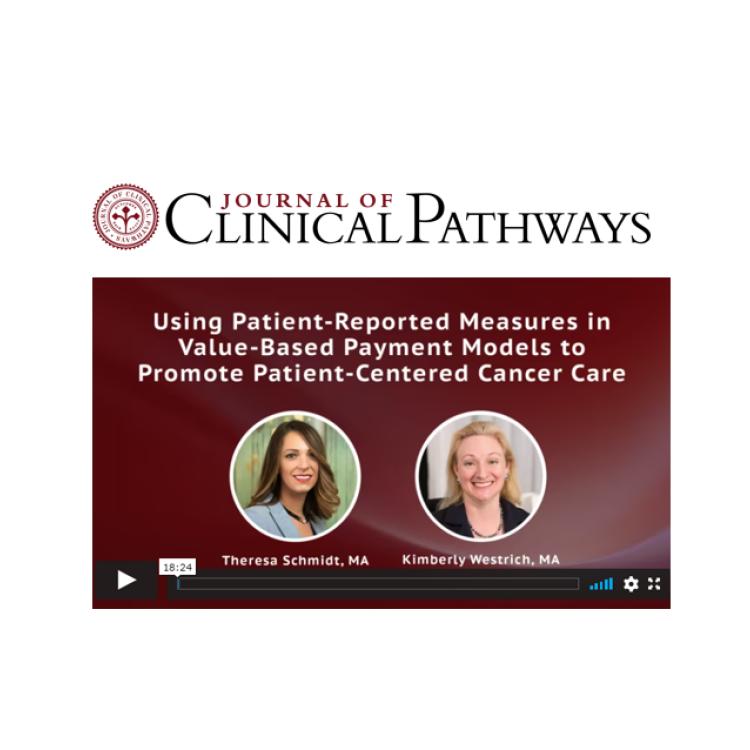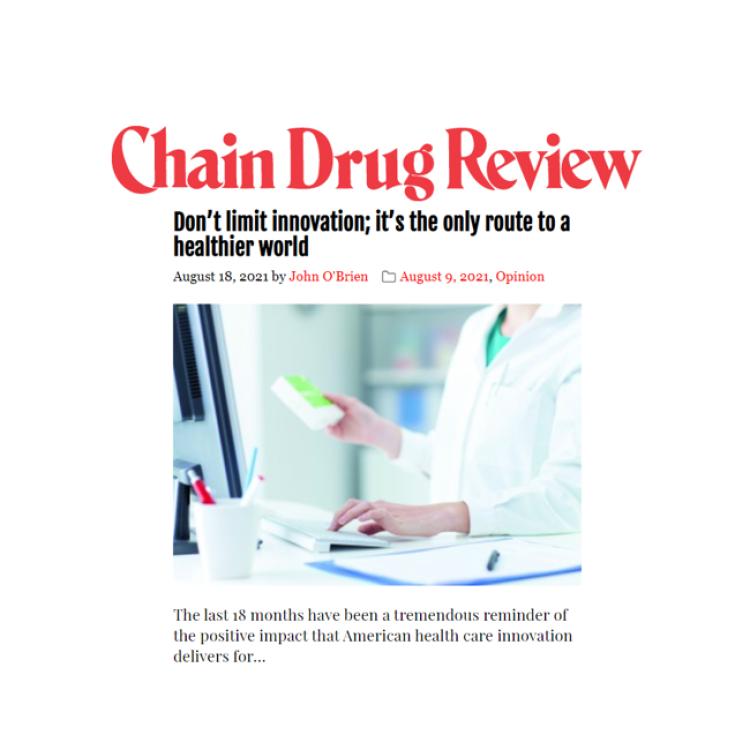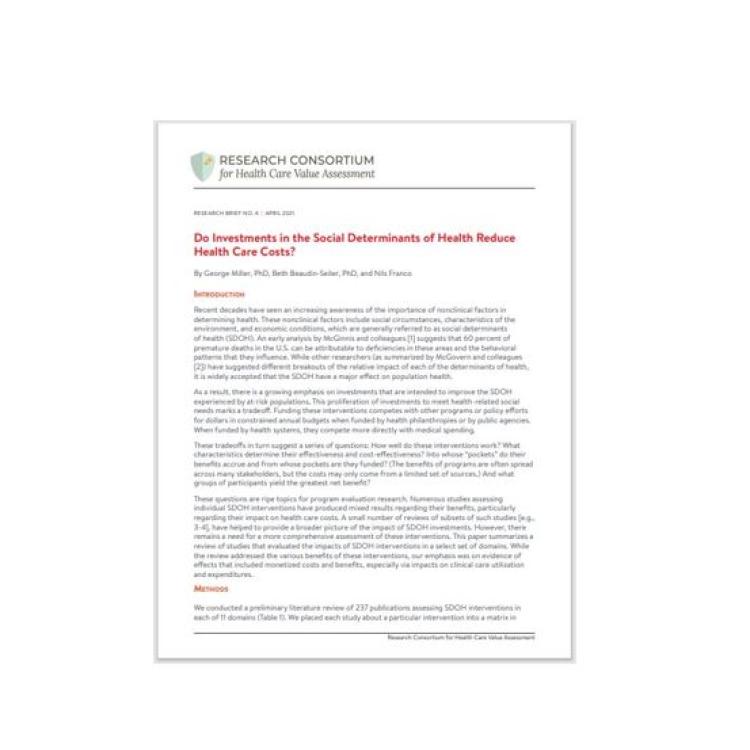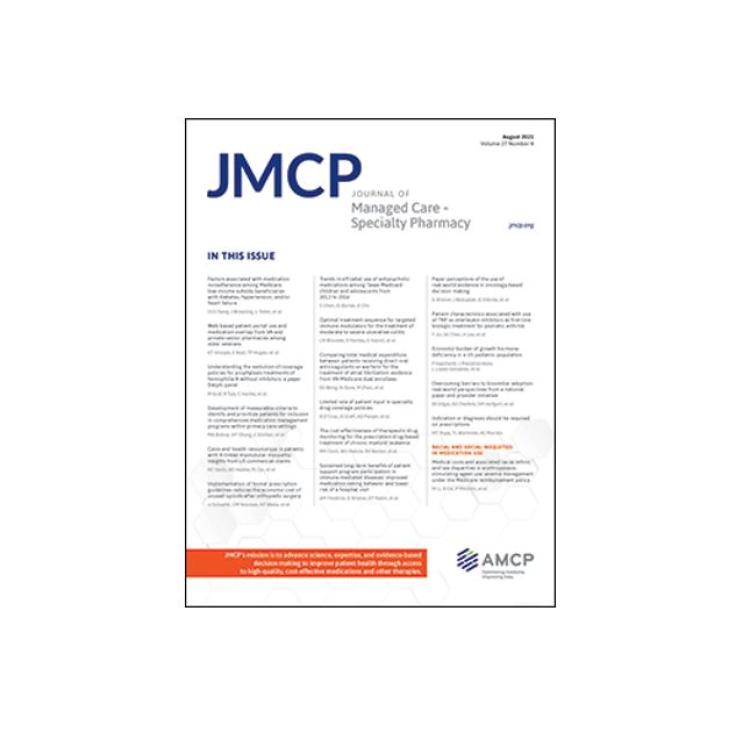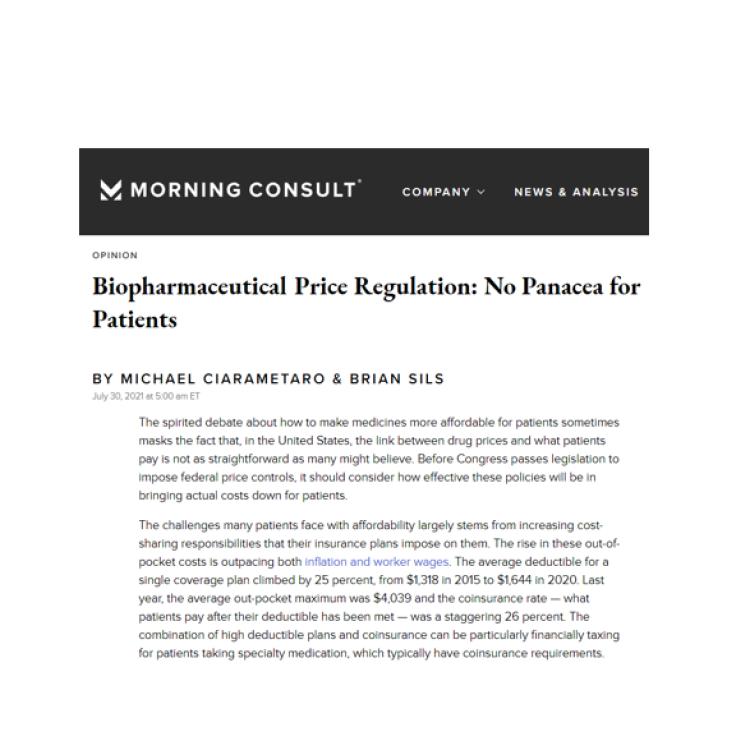Resources
The National Pharmaceutical Council (NPC) is a health policy research organization dedicated to the advancement of good evidence and science, and to fostering an environment in the United States that supports medical innovation.
Filter by:
Topic
Topic
- Accountable Care Organizations
- Alternative Payment Models
- Biopharmaceutical Innovation
- Bundled Payments
- Clinical Pathways
- Decision Frameworks
- Elements of Value
- Evidence for Decision Making
- Formulary/Benefit Design
- Formulary Development
- Good Practices for Evidence
- Health Care Quality Measures
- Health Spending
- Health Spend Management
- High-Deductible Health Plans
- Impact on Outcome & Spending
- Individual Treatment Effects & Personalized Access
- IRA Implementation
- Low-Value Care
- Pandemic Response
- Patient Cost Sharing
- Paying for Cures
- Pharmacy Benefit Managers (PBMs)
- Policy & Regulatory Barriers
- Real-World Data
- Real-World Evidence
- Regulatory Barriers & Challenges
- Understanding Health Spending
- Utilization Management & Step Therapy
- Value-Based Contracts
- Value-Based Insurance Design
- Value Assessment
- Value Assessment Frameworks
- Value Assessment Methods
Resource Type
Display Only
Showing 1216 Results
Going Below The Surface
Going Below The Surface was an NPC-led initiative to broaden and improve the conversation around how we use health care resources in the United States.
E.V.I.dently® | September 2021
In this issue: Explore drug pricing and innovation, patient input in health benefit design, the research infrastructure to examine social determinants of health and upcoming events.
NPC Submits Comments on Medicare Physician Fee Schedule Proposed Rule
NPC submitted comments on the Medicare Program’s CY 2022 Physician Fee Schedule proposed rule recommending opportunities to enhance understanding of patient-reported outcomes and address barriers to…
NPC in Health Affairs: Payment Innovation Not Keeping Up
In a Health Affairs Blog article, NPC and MIT researchers outline how a new rule from CMS may fall short of what is needed to improve patient access to durable cell and gene therapies that target…
A Healthier Country Means Lower Health Care Spending
The U.S. spends twice as much per person on health care compared to other wealthy countries. While higher U.S. health care prices play a role in this disparity, they are not the only cause. A new NPC…
It Is Not Just the Prices! The Role of Chronic Disease in Accounting for Higher Health Care Spending in the United States
A new NPC study shows that the higher prevalence of chronic disease in the U.S. is a significant contributing factor to high U.S. health care spending.
NPC Comments on CMS' Proposed Medicare Shared Savings and Physician Fee Policies
NPC offers research-based comments to improve CMS' Merit-based Incentive Payment System Value Pathways and quality measurement.
Prevalence of Avoidable and Bias-Inflicting Methodological Pitfalls in Real-World Studies of Medication Safety and Effectiveness
This paper focuses on recognizing methodological flaws in RWE studies so that researchers can avoid these flaws by identifying them ahead of time – not just after a study is complete.
NPC Commits to Mandating COVID-19 Vaccination
NPC joined a group of 14 health care organizations in and around Washington, D.C., in issuing a joint statement making COVID-19 vaccination a condition of returning to work in their respective…
Avoiding Methodological Faults in Real-World Evidence
Researchers from Brigham and Women’s Hospital, Harvard Medical Center and NPC found that the potential for biased findings in RWE studies increases substantially in the absence of a rigorous and…
Drug Innovations Are Delivering for Patients. We Need Innovation in How They’re Paid For.
In a commentary for PharmaBoardroom, NPC's John M. O’Brien explains why we need a focused effort from all health care stakeholders to innovate on how we pay for vital medicines.
Webcast: Priorities for Patient-Centered Care in Oncology
On a recent webcast, NPC Vice President of Health Services Research Kimberly Westrich discusses the importance of patient-centered care and the benefits and opportunities of incorporating…
Rethinking Benefit Design: Eliminating Inefficient Hurdles
Reforming health benefits by overhauling existing utilization management practices and adjusting patient cost-sharing to incentivize high-value care would help achieve more affordable, patient…
Working Together to Deliver Innovation for Patients During COVID-19 and Beyond
What's at risk if we limit innovation? Read the commentary from NPC's John O'Brien in Chain Drug Review.
Building a Better Evidence Base to Address the Social Determinants of Health
The COVID-19 pandemic has put a spotlight on the pressing need to address social determinants of health (SDOH). NPC's Dr. Dubois examines the gaps within the existing evidence base and how…
Why Drug Rebates Aren’t Working for Patients
During a recent webinar, NPC President and CEO John M. O'Brien discusses how the Medicare Part D rebate system creates barriers to affordable care for patients.
Do Investments in the Social Determinants of Health Reduce Health Care Costs?
This study found that most studies of social need interventions were poorly designed, inadequately documented, and inconsistently presented. It recommends improving the study design quality through…
Limited Role of Patient Input in Specialty Drug Coverage Policies
A new study in JMCP found that patient input is rarely sought for coverage policies – although plans had processes to engage physicians and medical societies when developing coverage policies, no…
Missing: Patient Input in Drug Coverage Policy
A new study by NPC and the Center for the Evaluation of Value and Risk in Health at Tufts Medical Center found that health insurance plans do not ask patients for input when developing specialty drug…
NPC in Morning Consult: Biopharmaceutical Price Regulation - No Panacea for Patients
In a column published in Morning Consult, NPC's research team explains why potential government involvement in drug pricing would be unlikely to increase patient affordability.


